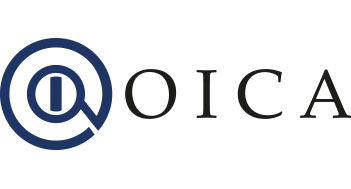2017 OICA Press release: OICA President Matthias Wissmann: “Electric vehicles offer an important alternative to internal combustion engines, however it is not the only solution on a global scale”
OICA President Matthias Wissmann: “Electric vehicles offer an important alternative to internal combustion engines, however it is not the only solution on a global scale”
Paris, October 17th, 2017: during the OICA General Assembly in Indonesia, Matthias Wissmann, OICA President, underlined the positions of the participating national vehicle associations that “electric vehicles offer an important alternative to internal combustion engines (gasoline and diesel), however it is not the only solution on a global scale“. The present is full of uncertainty about the future of conventional technologies. Any technology ban is definitely the wrong way to achieve a balance between industrial policy and climate protection. We must be open to technology. That means the global automotive industry needs to pursue a technology-neutral approach.
OICA is the global association of motor vehicle manufacturers, with 39 members from all continents. The members are all associations and include the ACEA. All the large OEMs and brands from the European countries, Russia, the US, China, Korea, Japan, India are represented in OICA by their national organizations.
The OICA General Assembly, hosted by GAIKINDO, the Association of Indonesia Automotive Industries, discussed the future of individual mobility, in the light of digitization and especially some political aims to stop the internal combustion technology and replace it with all-electric propulsion.
According to the OICA President, “while it clearly is the role of governments to define ambitious environmental targets with impact assessments in the face of climate change and air quality, they are not expected to dictate the technology able to meet these targets. The Industry bears the responsibility to choose and offer the required products to the consumers, while governments bear the responsibility of a technology-neutral, open and fair competition.“
Wissmann added that “an overall approach needs to be taken looking at all parameters involved; this means from the energy production at the source, up to the tailpipe emissions, whether this concerns greenhouse gases or pollutants such as carbon monoxide, nitrogen oxides or particles and others.” He was convinced that “such an overall approach will demonstrate that, depending on the country or region, and depending on the kind of vehicles and their usage, there may be other alternatives than battery electric vehicles alone. Internal combustion engines, for example plug-in hybrids, offer good prospects for many years to come and even more with new alternative bio and synthetic fuels.“
On the digitization of cars, Wissmann noted that “this involves many issues: vehicle automation, connectivity, cybersecurity, etc. The regulatory framework will need to be addressed for many of these issues, and the vehicle manufacturers are actively supporting governments internationally to develop new certification concepts. Digitisation offers a huge potential, and new mobility concepts are emerging besides individual mobility; many consumers will however still enjoy the fun to drive their own vehicles for many years to come.“
Download our press release
